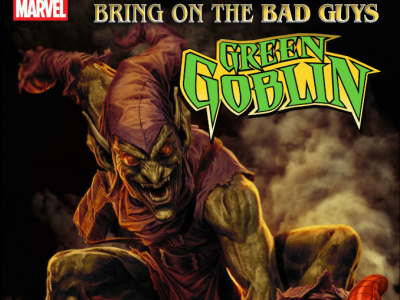Confessions of a Comic Book Guy is a weekly column by retailer Steve Bennett of Super-Fly Comics and Games in
In the February 18th edition of the Lying in the Gutters column over at the Comic Book Resources Website, Rich Johnston posted this item:
Sources close to freelancers inform me that DC Comics has a new in-house policy for pencillers. Aside from very specific contracted creators (such as Jim Lee), any penciller contracted to work on a monthly book must deliver complete turnaround of 22 pages of work in four weeks. Not a month, four weeks. If that schedule isn't maintained, they'll pull pages and assign them to other creators. And you may run short of future work. A reduction in quality is more acceptable than a reduction in quantity.
Specific examples I've been given include the recent issue of Wonder Woman was half Dodson and half Ron Randall. Also why Koi Turnball was dropped from Jack Hawksmoor. And it has been pointed out that there are already three fill-ins on the new Legion schedule.
Creators are also being dropped from exclusive contracts over this new regime. Expect certain publishing vultures to swarm.
It's been a couple weeks and it has yet to be confirmed or denied; DC might consider that this falls in the category of an internal Time-Warner policy (and as such, supposedly none of our business), and it might take a while for someone to unofficially corroborate it. And if true, well it's about bloody time. For at least a decade one of the industry's major problems has been the increasing number of artists incapable of producing the pages companies need to keep the monthly superhero titles (a.k.a. our bread and butter) actually monthly.
Like I have to tell any of you but this is a problem, not because we're a bunch of babies who want what we want when we want it (as Marvel was kind enough to suggest during the interminable wait between issues of Civil War) but because late comic books hurt a comic book shop's bottom line. And while it's true the hardcore faithful will wait, if impatiently, for the much delayed next installment of the latest hot title it's also just one more thing to stop people from coming into your shop this week. And we don't need any more of those.
I suppose I should note that I'm saying it's the artist who's late because to find an example of a writer's tardiness causing a comic book to use a fill-in, I'd have to go all the way back to the late, great Steve Gerber's run on Howard the Duck. Of course there are still plenty of artists who have no trouble meeting their deadlines, but even those don't stay on a single title for more than a year these days because of creative burnout.
As to why they're late...is it because today's artwork is more detailed than it used to be, hence harder to draw? Or is it a decline in our work ethic, i.e. the monthly superhero comic book becoming yet another job Americans would rather not do (which would explain all the foreign artists drawing Marvel/DC comics these days)?
Usually when someone asks these kinds of questions, they already have answers, but I'm sincerely asking because I don't know why. It's easy to blame the artists (the way the publishers like to blame the messenger, the message being "the system isn't working"), but if I had to hazard a guess
The Format
Maybe we're just asking too much of today's artists. Up until the early 1960s nobody expected a single artist to draw an entire comic book, until the fans wanting to see more of the headliners killed off the last of the back-ups. So why not instead do one of those weekly or bi-weekly comics with multiple stories so you could have several "big name" artists, who might be willing to stay on a character longer under these improved working conditions? What you'd have is a comic that would be attractive to creators, readers and retailers.
The Process
Unlike the manga artist who, while receiving all the credit for his comic, would be incapable of producing it on a weekly basis without the help of maybe a half dozen unnamed assistants, we like to believe a single artist is responsible for our comics, which often isn't the case. One of the industry's dirty little secrets is our artists do have assistants, or at the very least, frequently have to rely on the kindness of friends who pitch in when they're facing the old deadline doom. And of course these days a Marvel/DC comic is "written" as much by the editor as they are by the author of record.
So maybe it's time we stop pretending and just go back to the old studio system from the Golden Age. Yeah I know, it's "brand name" artists who bring in the punters, and it would be harder to argue artistic or literary merit for a comic if there's the perception it's produced by a committee. But I would like to remind the jury that Will Eisner had assistants on The Spirit, and that comic is still considered (a) great and (b) his.
The opinions expressed in this Talk Back article are solely those of the writer, and do not necessarily reflect the views of the editorial staff of ICv2.com.







